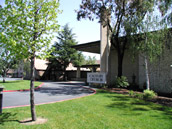Public vs. Private Ethics
It has often been said, “What happens in privacy does not hurt anyone.” The motto for Las Vegas resonates this private versus public philosophy, “What happens in Las Vegas stays in Vegas.” Or does it? Does it get carried out by other means? Is anything truly secret? The implication of the two mottos above suggests that any indiscreet behavior that transpires in the privacy of a hotel room will not become publicly known and bring irreversible harm or affect that individual or the community. Accordingly, a person can be assured that there will be no public exposure of private indiscretions.
This raises the issue: Do private ethics have no bearing on public life or social ethics? Does what occurs in the privacy of a public official’s home or office have no influence on public or social policy decisions? Can private ethical behavior be separated from social ethics without consequences? Can there be public or social ethics without underlying personal ethics? Is there a legitimate bifurcation between private and public ethics? These questions go to the heart of law, the extent of morality, relationships development, the inner life and its outward expression, and public and social policy development.
Private Lives and Public Policy
David Gill of the University of Southern California cuts to the heart of the matter concerning private and public ethics with a brilliant assessment of the relationship between social and personal ethics,
“It is impossible to maintain a clear and precise distinction between social ethics and personal (individual) ethics. No individual behavior is without social implications. No social situation or problem is without individual repercussions.” [1]
According to Gill, public policy and social ethics are intertwined. He again writes,
“Public policy, politics, economics, war, poverty, education, racism, ecology, and crime: these are examples of the subject of social ethics.” [2]
All of the social institutions he identifies encompass a vast range of issues in every segment of society and cannot exist apart from individuals. Business, education, the church, professional associations, and government all involve people as they interact, exchange ideas, trade goods and services, and make decisions. They influence one another during these interchanges and affect the structure and moral environment of society.
A Case Study of Ethics in Government: Bill Clinton
In writing for the Associated Press, Richard Ostling states that many allies of former President Bill Clinton did not consider Clinton ineffective in spite of his moral sexual failures while in the White House. However, Ostling cites ethicists who contend otherwise: “that there is a necessary linkage between private character and public performance.” [3] He quotes Richard Mouw of Fuller Seminary as saying, “A leader's personal "integrity and promise keeping" are especially important in the international arena.” [4] James B. Nelson of the United Theological Seminary also links private ethics with public influence and ethical leadership: “Clinton's deeds are clearly a public matter because they produce "disillusionment, further erosion of trust in officials, and dreadful distractions from pressing matters of public business.” [5]
However, not all ethicists or theologians share their view. The Reverend Joan Campbell of the National Counsel of Churches comments, "The private lives of our public leaders are best left private or we will have none allowed to lead." [6] Still another ethicist, Don Welch of Vanderbilt University law school adds what appears to be a middle ground, “If an employer is involved sexually with a private citizen outside the workplace, he says, "arguably that's none of our business." On the other hand, he says, sex with a subordinate that occurs at the office becomes a public matter.” [7]
However, is this truly a middle ground or simply a compromise based on situational ethics? If that private citizen is not his or her spouse and this employer is a high profile public figure that is head of a university, charitable organization, or influential corporation, does that change the argument? On what basis does the matter become the business of public ethics? What is the line between a private issue and a scandal? When does this sexual involvement cross the ethical line?
Any number of variables could be added to the situation concerning an employer and his or her sexual encounters. For example, is the employer married or single? However, without a moral base from which to distill an ethical judgment, morality becomes moot if approached from a situational stance.
[1] Gill, David W., Social Ethics in Evangelical Dictionary of Theology, 2nd Edition, Ed. Walter A. Elwell (Grand Rapid: Baker Book House, 2001), 1116-1117.
[2] Ibid.
[3] Ostling, Richard N., Ethics experts say president’s private life is necessarily public in Online Athens, Athens Banner-Herald, September 20, 1998, http://www.onlineathens.com/1998/092098/0920.a3clintonpublic.html.
[4] Ibid.
[5] Ibid.
[6] Ibid.
[7] Ibid.

